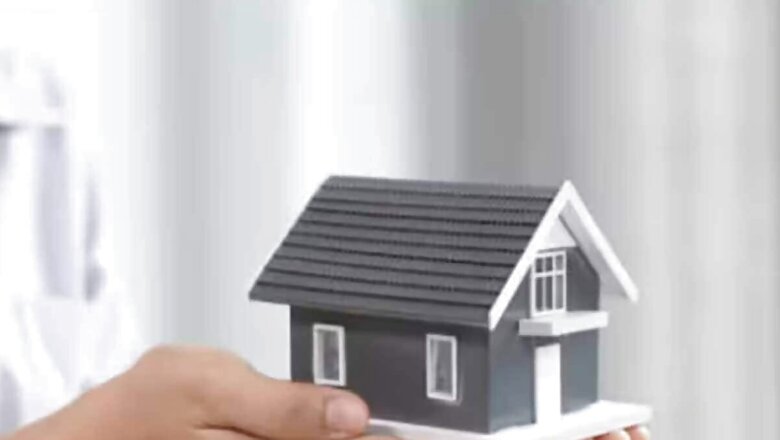
views
The Union Cabinet last week approved the Pradhan Mantri Awas Yojana-Urban (PMAY-U) 2.0 under which financial assistance will be provided to one crore urban poor and middle-class families through states and Union Territories to construct, purchase, or rent a house at an affordable cost in urban areas in five years.
The government will assist Rs 2.30 lakh crore under the scheme.
A total of 1.18 crore houses have been sanctioned in the first phase of PMAY-U 2.0, while more than 85.5 lakh houses have already been constructed and delivered to the beneficiaries.
The PMAY-U is one of the major flagship programmes of the Central government which is aimed at providing all-weather ‘pucca’ houses to all eligible candidates in the urban areas.
“In pursuance of the Prime Minister’s vision, PMAY-U 2.0, with an investment of Rs 10 lakh crore, will address the housing needs of one crore families, ensuring that every citizen leads a better quality of life,” the government in a statement said.
PMAY-U 2.0 Urban Eligibility
Under the PMAY-U 2.0, families belonging to economically weaker sections, low-income groups, or middle-income groups having no pucca house anywhere in the country are eligible to purchase or construct a house EWS households are families with an annual income up to Rs 3 lakh.
LIG households are families with an annual income from Rs 3 lakh up to Rs 6 lakh. MIG households are families with an annual income from Rs 6 lakh up to Rs 9 lakh.
PMAY-U 2.0 Urban Subsidy
Under the Interest Subsidy Scheme, the government will give subsidies on home loans for EWS, LIG, and MIG families.
Beneficiaries taking loan up to Rs 25 lakh for house value up to 35 lakh will be eligible for 4 per cent interest subsidy on the first Rs 8 lakh loan for up to 12 years, according to the scheme.
A maximum of Rs 1.80 lakh subsidy will be given to eligible beneficiaries in 5-yearly instalments through the push button. Beneficiaries can access their accounts through websites, OTP or smart cards.
Under the Affordable Housing in Partnership (AHP) segment of the PMAY-Urban, financial assistance will be provided to EWS beneficiaries for owning houses built under different partnerships between states, UTs, and cities.
Redeemable housing vouchers will be given to beneficiaries who purchase houses from private projects.
“States/UTs/ULB shall whitelist the private sector projects complying with all the necessary norms. An additional Grant in the form of Technology Innovation Grant (TIG) @Rs 1000 per sqm/unit shall be provided to AHP Projects using innovative construction technologies,” the statement said.
About the Affordable Rental Housing (ARH), the government said that this vertical will create adequate rental housing for working women/industrial workers/urban migrants/ homeless/destitute/students and other eligible beneficiaries.
“ARH shall ensure affordable and hygienic living spaces for urban dwellers who do not want to own a house but require housing for short term basis or those who do not have the financial capability to construct/buy a house,” it said.
Experts said PMAY-U 2.0 has the potential to significantly impact urban housing affordability and quality of life.
Prashant Sharma, President, NAREDCO Maharashtra, said that the approval of PMAY-U 2.0 marks a monumental step in addressing the housing needs of our urban population, particularly the economically weaker sections and middle-class families.
“This decision not only promises to uplift the quality of life for millions but also catalyses the growth of the real estate sector, spurring job creation, and fostering economic resilience, ” Sharma said.
Collaborative Framework
Sharma underlined that by providing financial assistance through states, union territories, and public lending institutions, PMAY-U 2.0 strengthens the collaborative framework between the government and private sector, essential for realising the goal of inclusive urban development.
Time-bound implementation
Sharma pointed out that as we move forward, it will be crucial to ensure that the implementation of this scheme is streamlined and that the benefits reach the intended beneficiaries promptly.
Pritam Chivukula, Vice President, CREDAI-MCHI and Co-Founder & Director, Tridhaatu Realty, also endorsed the view and this initiative not only promises to enhance the urban landscape but also ensures that the dream of owning a home becomes attainable for our urban poor and middle-class families.
“The comprehensive financial assistance of Rs 2.30 lakh crore reflects a strong commitment to address the housing shortage and improve living standards across urban areas. This scheme will catalyse the sector, create numerous job opportunities, and stimulate economic activities in related industries, thereby fostering a holistic development of the urban ecosystem,” Chivukula said.
Rajeev Ranjan, Co-Founder & CEO, The Mentors Real Estate Advisory, too highlighted that the emphasis on affordable housing will likely spur demand in the sector, paving the way for innovative housing solutions and partnerships between public and private sectors.




















Comments
0 comment